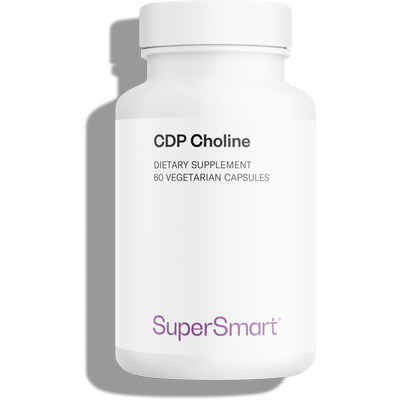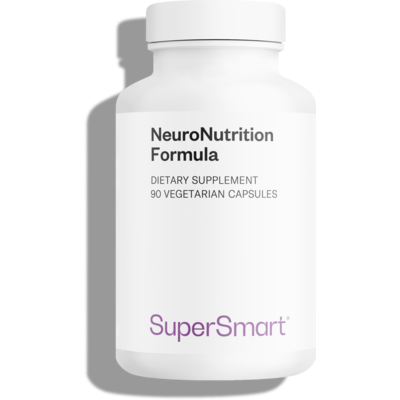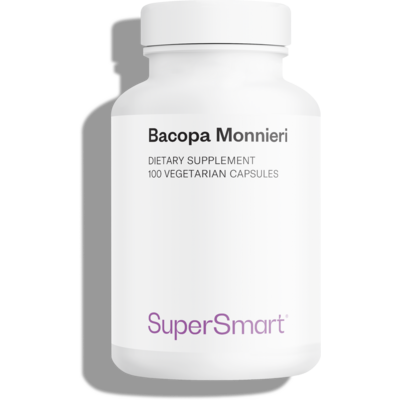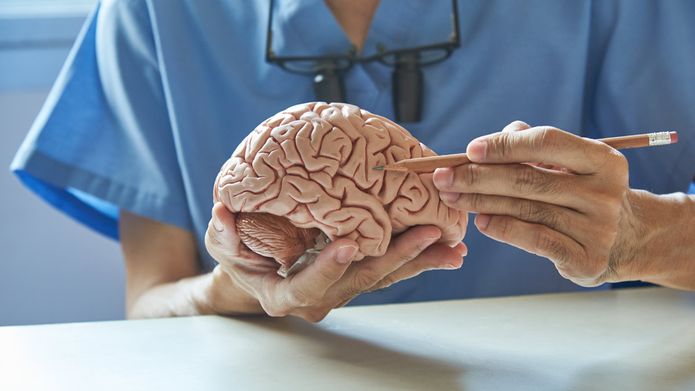Memory: disturbing experiments & life-saving ingredients
Memories transmitted by injection? Worms capable of remembering a skill after being decapitated? Behind these experiments, research into memory is progressing, showing that brain nutrition has a bright future ahead of it.

Scientific research on memory that has left its mark
Planaria: can a memory be transferred by ingestion?
The workings of the brain and memory have fascinated the general public and the scientific community for decades.
Among the most disturbing experiments on this subject is one carried out in the 1960s on planaria, which holds its share of surprises...
Planaria are small flatworms capable of rapid regeneration.
Scientist James V. McConnell sought to demonstrate that planaria that had learned a behaviour could transmit the 'memory' of this action to other individuals in an unexpected way: by being crushed and then ingested by their fellow planaria.
This gave rise to the idea of a memory that could be transferred by biological substances. However, the methods used and the results obtained in this study were widely criticised (and still are today) for lacking scientific rigour.
Injecting messenger RNA (mRNA): a way of implanting a memory in the brain?
More recently, in 2018, neurobiologist David Glanzman from UCLA reignited the debate. He injected mRNA extracted from sea snails (Aplysia) that had learned a behaviour into their naïve counterparts (those not subjected to any specific training) (1).
After observation, the researchers found that the latter showed similar reactions to the trained animals, suggesting that mRNA could play a role in the storage and transfer of memory.
These results have aroused great interest among scientists. However, they remain controversial, not least because of the complexity of the mechanisms underlying learning and memory. What's more, it is difficult to extrapolate this data to human beings.
Animal experiments: leads, but no confirmation
Naturally, other studies have looked at the mechanisms involved in memory. In 2013, planarian worms were in the news again (2).
This time, they were taught to overcome their fear of light in order to feed. Once they had learned their lesson, the worms were cut in half.
Thanks to their impressive capacity for regeneration, each half was able to ‘regrow’ the missing part in just a few days.
The result: each of the two new worms was able to expose itself to light in search of food. They had therefore retained the memory of the learning they had previously acquired!
Although these experiments provide a number of clues to understanding cerebral plasticity, they do not validate the hypothesis of a transmissible memory in the strict sense of the word.
Memory is a complex biological process, combining chemical, genetic and environmental interactions.
What we know about memory and recall today
A matter of neurons
Although certain clinical studies have given rise to much debate, current knowledge of memory is nonetheless based on solid foundations.
We now know that memories are not stored in a single place in the brain (3).
They are generated by a complex network of neurons, whose connections evolve over time and throughout life. This is known as synaptic plasticity.
The clearly established role of messenger RNA (mRNA)
Mechanisms involving mRNA have been identified, this time without controversy. It plays a key role in the synthesis of proteins essential for memory (4).
Research has shown that high neuronal activity triggers the transcription of certain genes, enabling the local production of proteins involved in the construction of synapses. It therefore contributes to synaptic plasticity.
Epigenetics and modulation of neuronal activity
Chemical modifications can bind to DNA and act as switches, activating or deactivating certain memory-related genes.
These so-called epigenetic marks can influence the way neurons function over the long term (5). This would explain why some memories persist for many years.
Memory traces, a neuronal representation of memories
Specific proteins such as PKMζ (protein kinase M-zeta) or CREB (cAMP response element-binding protein) are involved in the formation of memory traces, meaning ultimately memories (6).
They act as biochemical switches, triggering a number of mechanisms that help strengthen synapses and therefore to memorise certain things.
Brain nutrition: plants and nutrients to support cognitive functions
Bacopa monnieri: an Ayurvedic plant for the memory
Bacopa monnieri has been used for centuries in Ayurvedic medicine.
It is thought to have a positive effect on the cerebral system, improving both short-term and long-term memory (7). It may help improve concentration and memory while also aiding relaxation.
Bacopa monnieri supports peripheral blood microcirculation and contributes to good blood flow, thus promoting brain irrigation.
It also contains large quantities of antioxidants. Antioxidants help combat the oxidative stress responsible for the premature ageing of cells, particularly brain cells.
To take advantage of these benefits, you can consume it in the form of a food supplement.
- Discover Bacopa Monnieri supplement, an extract standardised to 20% bacosides.
Choline: an essential precursor of acetylcholine
Choline is an essential nutrient and precursor of acetylcholine. Acetylcholine is a neurotransmitter involved in memory and learning processes (8).
On an organic level, acetylcholine promotes communication between neurons and helps strengthen their connections, helping the brain to store memories.
Choline also contributes to the body's normal metabolism of homocysteine, an amino acid whose stable levels help maintain healthy cognitive functions.
Choline is naturally present in food. But it is also possible to supplement its intake.
- Discover the CDP Choline food supplement, which provides 500 mg of choline per daily dose.
Adopt a synergistic approach to brain plasticity
It is also worth considering brain health as a whole by providing the body with several substances that are beneficial to the brain and cognitive function.
Some formulas combine substances that have been studied for their effects on brain ageing, mRNA production, acetylcholine synthesis or the supply of energy to the brain.
They are therefore part of a genuine cerebral nutrition approach.
- Discover NeuroNutrition Formula, based on 7 carefully selected substances.
SUPERSMART ADVICE
References
- Bédécarrats A, Chen S, Pearce K, Cai D, Glanzman DL. RNA from Trained AplysiaCan Induce an Epigenetic Engram for Long-Term Sensitization in Untrained Aplysia. eNeuro. 2018 May 21;5(3):ENEURO.0038-18.2018. doi: 10.1523/ENEURO.0038-18.2018. PMID: 29789810; PMCID: PMC5962046.
- Shomrat T, Levin M. An automated training paradigm reveals long-term memory in planarians and its persistence through head regeneration. J Exp Biol. 2013 Oct 15;216(Pt 20):3799-810. doi: 10.1242/jeb.087809. Epub 2013 Jul 2. PMID: 23821717.
- Shomrat T, Levin M. An automated training paradigm reveals long-term memory in planarians and its persistence through head regeneration. J Exp Biol. 2013 Oct 15;216(Pt 20):3799-810. doi: 10.1242/jeb.087809. Epub 2013 Jul 2. PMID: 23821717.
- Sudhakaran IP, Ramaswami M. Long-term memory consolidation: The role of RNA-binding proteins with prion-like domains. RNA Biol. 2017 May 4;14(5):568-586. doi: 10.1080/15476286.2016.1244588. Epub 2016 Oct 11. PMID: 27726526; PMCID: PMC5449092.
- Brickner JH. Mechanisms of epigenetic memory. Trends Genet. 2014 Jun;30(6):230-6. doi: 10.1016/j.tig.2014.04.004. Epub 2014 Apr 26. PMID: 24780085; PMCID: PMC4072033.
- Patel H, Zamani R. The role of PKMζ in the maintenance of long-term memory: a review. Rev Neurosci. 2021 Feb 8;32(5):481-494. doi: 10.1515/revneuro-2020-0105. PMID: 33550786.
- Roodenrys S, Booth D, Bulzomi S, Phipps A, Micallef C, Smoker J. Chronic effects of Brahmi (Bacopa monnieri) on human memory. 2002 Aug;27(2):279-81. doi: 10.1016/S0893-133X(01)00419-5. PMID: 12093601.
- Maurer SV, Williams CL. The Cholinergic System Modulates Memory and Hippocampal Plasticity via Its Interactions with Non-Neuronal Cells. Front Immunol. 2017 Nov 8;8:1489. doi: 10.3389/fimmu.2017.01489. PMID: 29167670; PMCID: PMC5682336.
Keywords
20 Hours
great products and prices
great products and prices
Marie
6 Days
Easy to navigate site
Easy to navigate site, had what I was searching for, good price. easy order-check out
James Tucker
12 Days
My skin is clearing up nicely!
Pretty good for my skin so far.
Christian
14 Days
The new packaging is excellent
The new packaging is excellent - finally! No more squashed boxes and torn envelopes.
GORAN
15 Days
Great Product
Great Product
Larry Garrett
20 Days
Quick shipping
Quick shipping; good price. No issues!
Mary McCarty
21 Days
Thr product is very good and is helping…
Thr product is very good and is helping me on my health. Then is always on time
LUGO Luz
24 Days
Buying was fine
Buying was fine. I had problems with the website not recognizing my login info, and had to call to get it fixed. Other than that, everything was good.
David S. Clark
24 Days
Your super maca and super ginseng are…phenomenal
Your super maca and super ginseng are phenomenal supplements that compliment each other when taking them together. Fantastic feeling of well-being and lots of mid day energy without the crash.
Keith Mason
27 Days
I have had amazing results with every…
I have had amazing results with every supplement I've purchased. I am extremely satisfied with this company
kirstin Torres
27 Days
Fine products
Fine products . They are on the leading edge of online supplements. The only issue -so far-is they sometime run out of subscription items.
Jason Argos
29 Days
The ordering process is very user…
The ordering process is very user friendly and the products always come in a timely manner.
CARTER Rhonda
31 Days
The price for Dr
The price for Dr. Pero's AC-11 is reasonable and in line with his views. (my former colleague). Keep it pure.
CAMPBELL Clayton
33 Days
Right on every time.
Right on every time.
Arthur Nicholas
36 Days
They are cheaper than everyone else and…
They are cheaper than everyone else and the shipping was fast. Great company.
Patricia Adams







